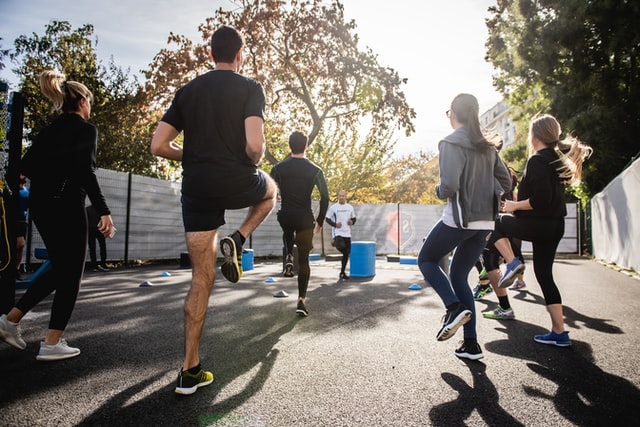How Physical Exercise Can Reduce Criminal Records
The best strategy to fight crime is prevention. This means taking care of the needs of the younger generation and directing them in the right direction.
In Australia, as in any other country, crime costs the economy millions of dollars and prison sentences are not a deterrent.
A far smarter approach is to invest in the younger generation before they commit a crime, and one of the most successful investments is in sport. This is how it works.
Why do young people get involved in crime?
To quote a famous movie, humans are not naturally born killers. They get caught up in criminal activity because they can't find anything better with their time.
According to a UK survey, 70% of teenagers say anti-social behavior is a product of sheer boredom. Obviously, not all teenagers find themselves in this situation. This is especially true for people in crisis areas, in low-income areas where crime is widespread.
In most cases, these teenagers also lack a strong role model and parental supervision. Because they are not motivated to focus on their studies and future careers, teenagers tend to get involved in criminal activities and street gangs.
When they grow up, these teenagers will be charged with a criminal record and unable to find work as most Australian companies these days require routine character checks by the Australian National Police as part of their screening strategy.
Exercise programs are an alternative to anti-social behavior
The idea of implementing sports programs is based on numerous surveys, from which it appears that crime rates in areas where young people have an alternative to spending free time, with the exception of minor crimes, which are usually associated with street gangs, sometimes drop significantly.
In the UK, many local authorities have run sport programs for young people between the ages of 8 and 17. The so-called street sports programs gave children the opportunity to take part in football, rugby or skateboarding competitions. The results have been very encouraging.
For example, in 2010 in the English town of Aylesbury, the local council set up a 10-week sports program during the summer holidays, with children of all ages playing rugby. The number of crimes and reports of anti-social behavior decreased by 10-35% compared to the previous year.
This is just a small experiment, but all sport initiatives in different parts of the UK have had similar results.
The Benefits of Exercising in Crime Prevention

Photo credit: Unsplash
First of all, there is the boredom factor. Young people who find something interesting to do are less likely to commit unsocial acts.
On the other hand, engaging in sports and hard work to show their skills builds self-confidence. They're less likely to attempt to establish themselves as a local thug if they can prove they're good at something else.
At the same time, team sports strengthen the bond with a different small community than a street gang and give young people a sense of belonging, which is essential for young people looking for an identity.
Participating in a regular sporting activity also gives the youngsters that much-needed sense of discipline. For example, they discover the need to get enough sleep to be in good shape, they have a schedule to respect, there is structure in their life.
All sports programs cost money, and sometimes local authorities are unwilling to invest funds to keep a few children playing football. That is short term thinking. In the long term, however, many of the children involved in such programs will stay away from crime and end their education.
Most importantly, they have a chance to get a good job without having to worry about the criminal record they had when they were 17 and nothing better to do than steal a few beers from the shop.
Wrap up
It has been shown that sporting activities and activities that are physical in nature can give individuals a sense of belonging, including loyalty, and thus support, which can lead to a reduction in suicide, truancy and illegal drug use, which can then be reduced should no longer be considered an option for the person involved in exercise.
It was also found that the various experiences young people have with physical activity and sports can include physical activities, things related to fitness, and developing physical skills.
Research has shown that physical activity and sport also provide important opportunities for people to develop their life skills for vulnerable teens, so that teens can better cope with their daily challenges and problems and no longer engage in things like violence, substance abuse, or criminal activities.
About the author:
Jessica Lee is a fitness specialist and lives in Victoria, Australia. She runs a gym in Victoria and enjoys blogging about sports and fitness trends in the Australian fitness industry.
Comments are closed.